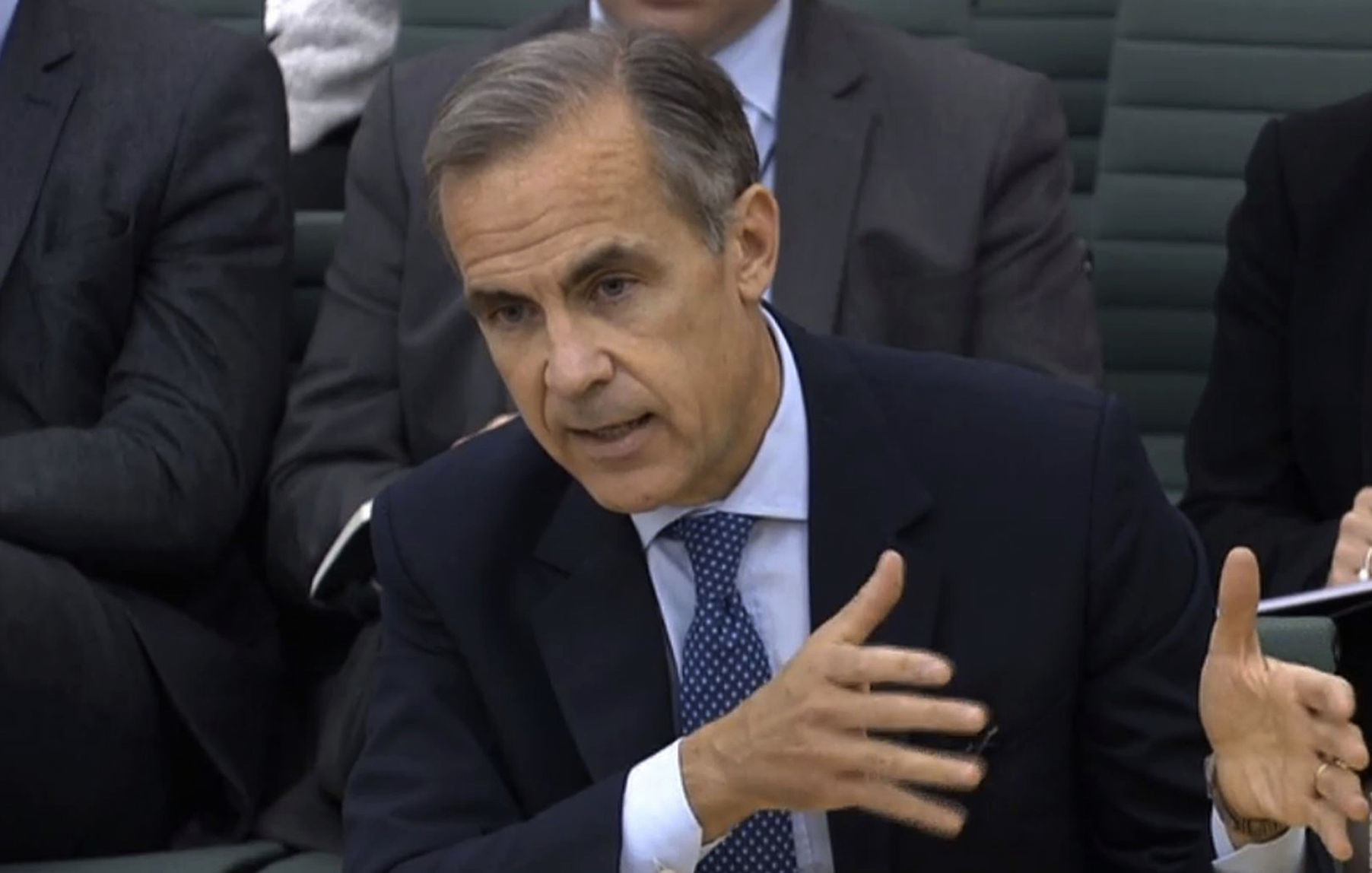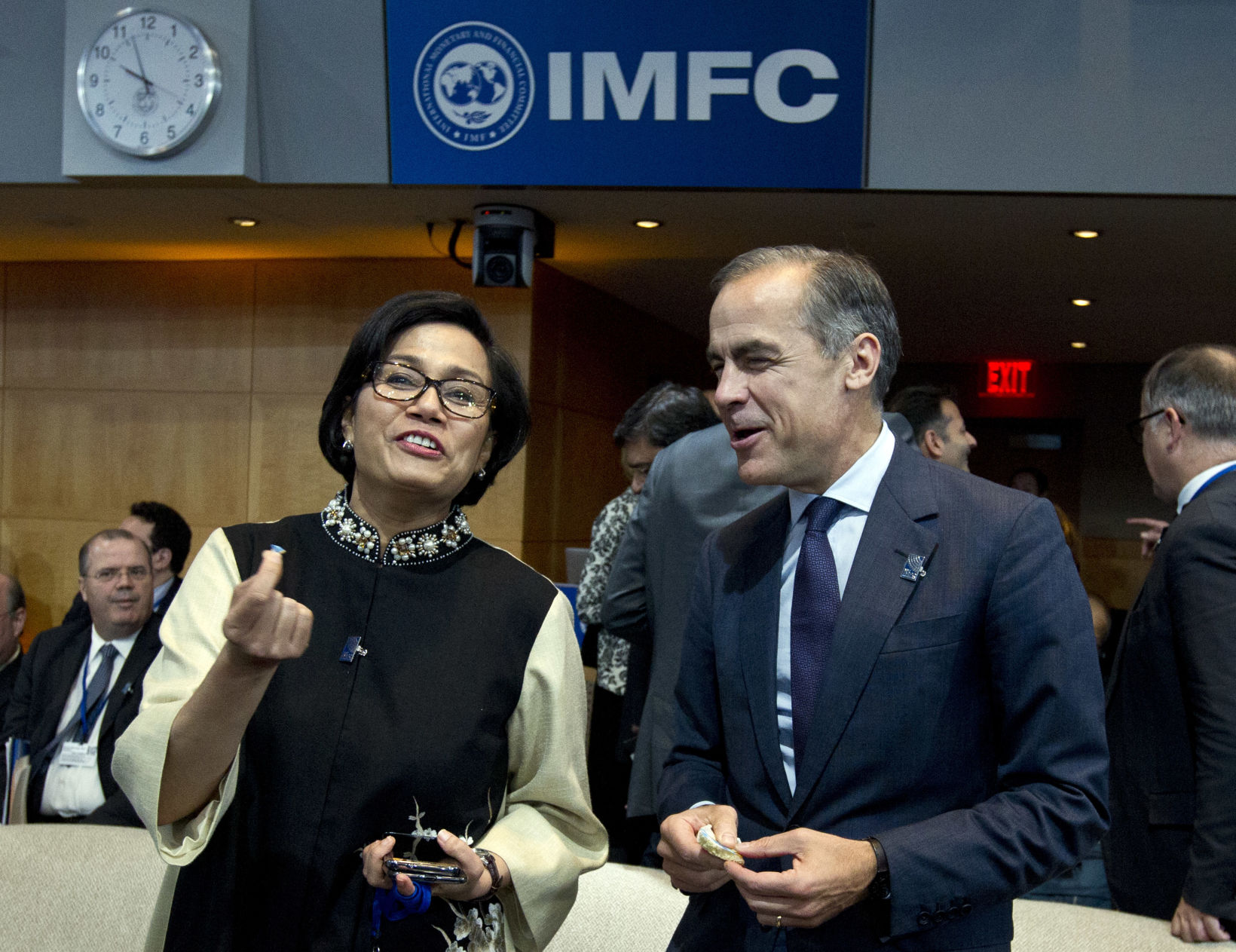LONDON (AP) — Inflation in Britain is set to rise above 3 percent in the next month or two due to Brexit-related price increases, the Bank of England’s governor warned Tuesday, reinforcing expectations that interest rates will soon rise for
LONDON (AP) — Inflation in Britain is set to rise above 3 percent in the next month or two due to Brexit-related price increases, the Bank of England’s governor warned Tuesday, reinforcing expectations that interest rates will soon rise for the first time in a decade.
Mark Carney’s comments came after official data showed consumer prices rose 3 percent in the year to September, from the previous month’s 2.9 percent rate. The increase, which took the rate to its highest since March 2012, was largely due to rising prices for food and transport.
If it had risen further, Carney would have had to write to Treasury chief Philip Hammond explaining why inflation is more than a percentage point above the 2 percent target and what the central bank was going to do about it.
In testimony to lawmakers on Tuesday, Carney said he’s “more likely than not” to have to write that letter in October or November.
It’s because of this high inflation that the bank’s rate-setting panel is expected to raise the benchmark interest rate by a quarter-point from the record low of 0.25 percent on Nov. 2. After the last meeting, when seven of the nine members voted for unchanged rates, Carney warned a “modest” hike was likely in coming months despite Brexit uncertainties and sluggish wage growth. Investors think it’s more or less a done deal now that the bank has signaled the increase.
“The bank’s credibility has been questioned following numerous false dawns on interest rate hikes,” said Ben Gutteridge, Head of Fund Research at Brewin Dolphin.
A rate rise would come despite an expected easing in inflation next year and mounting evidence that the economy is faltering as the official Brexit date of March 2019 draws nearer — it is growing slower than any other Group of Seven industrial economy.
The main reason why inflation spiked over the past year is the pound’s 15 percent or so drop since Britain voted to leave the European Union in June 2016. That ratcheted up the cost of imported goods like food and energy, trebling inflation since September 2016.
Carney put his weight behind the need for a transitional deal with the EU after Brexit and indicated that the outlines of a deal should be agreed on early next year to keep financial firms in particular from pushing ahead with contingency plans, including moving jobs out of Britain.
“There is a limited amount that firms can do in a short period of time,” he told lawmakers. “It’s important … not too much is asked from them.”
He argued that a disorderly Brexit — in which Britain leaves the EU without an agreement on what their new relations should be — is in no one’s interest. That’s especially true for financial firms dealing with complicated contracts and cross-border issues of insurance or data. Though the economic impact of Brexit will be felt most keenly in Britain, Carney said financial issues could be acute for the EU in the short run, as London is a financing hub for many European firms.
Fears of a “no-deal Brexit” have ratcheted higher recently as talks between the British government and the EU have made little headway.
Carney conceded that firms have become “less confident about a smooth transition” in contrast to households. That warning weighed on the pound, which fell 0.5 percent at $1.3186.
In a speech last month, Prime Minister Theresa May laid out her wish for a transition period lasting around two years after Brexit, during which Britain’s economic relationship with the other 27 EU countries will remain largely unchanged. A transition period could give both sides time to forge a longer-term relationship.
While acknowledging that Brexit offers Britain the long-term opportunity to reset its economy, Carney cautioned against moving too far from EU, given that the bloc accounts for nearly 50 percent of British exports. Those in favor of Britain leaving the EU without a deal worry that any future trade agreement could see Britain replicating EU laws, limiting the country’s sovereignty.
“The bird in the hand is quite large,” Carney said.
The Paris-based Organisation for Economic Co-operation and Development was less coy than Carney. In a wide-ranging report on the British economy, it warned that a disorderly Brexit could see the pound fall further, Britain’s credit rating downgraded and business investment dry up. By contrast, it said that abandoning Brexit, possibly through a new referendum, could yield a “significant” growth dividend.
?”The United Kingdom is facing challenging times, with Brexit creating serious economic uncertainties that could stifle growth for years to come,” said Angel Gurria, the OECD’s secretary-general.
In a statement, the Treasury said Britain is “leaving the EU” and that “there will not be a second referendum.”



